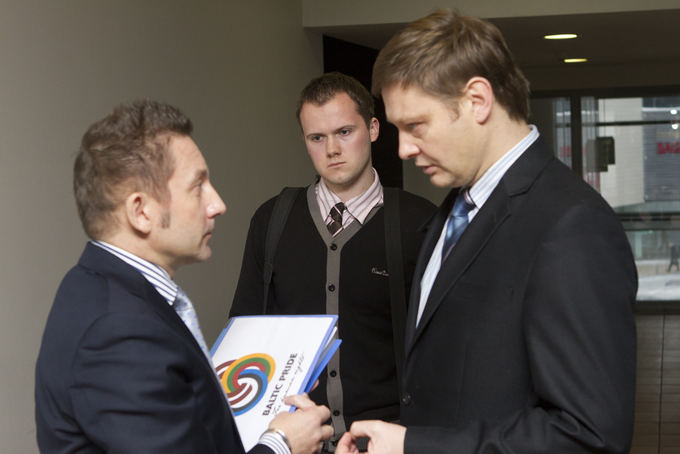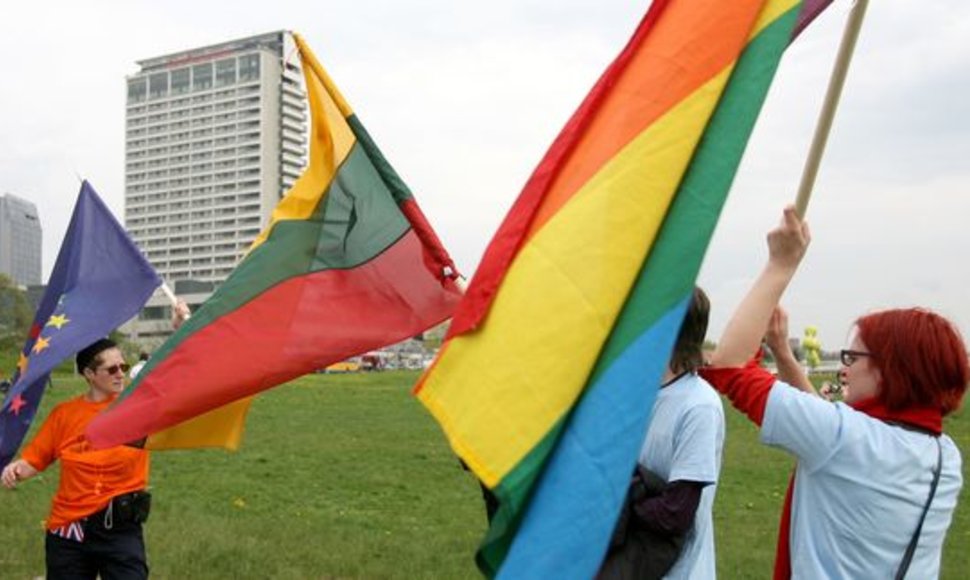Ritas Vaiginas, deputy director of Vilnius Municipality Administration, cautions, however, that the city might have hard time maintaining security in Gediminas Avenue - the location requested by the organizers - and suggests that the organizers choose a less prominent site.
The Baltic Pride march, held in Vilnius in May 2010, attracted much opposition and required several hundred policemen to protect participants from a crowd of counter-demonstrators. Vilnius authorities had initially denied permit for the event, citing security and public order concerns, but evetnually yielded following a ruling from the Supreme Administrative Court.
Back then, the pride was held in fenced Upės Street, on the fringes of central Vilnius, whereas this time, the Lithuanian Gay League requests a permission to march on Gediminas Avenue, one of the main arteries of the city and a popular site of public celebrations. Vaiginas, however, says the plan would make it difficult to ensure security.
"In Gediminas Avenue, we are dealing with interests of third parties - cafes will have to close, their work will be disturbed," Vaiginas said on Wednesday, during a meeting between the Lithuanian Gay League and city officials. "Besides, it will be difficult to ensure safety - things might be thrown at marchers, etc. In terms of security, Upės street is much more convenient."
The deputy director suggested organizers change the form of the event and hold it in Lukiškės Square. "But we are doing a parade this time," Vladimiras Simonko, leader of the Lithuanian Gay League, replied, "and we want to march in the same place that other social groups do - in Gediminas Avenue."
Vilius Navickas, who was Vilnius Mayor during the 2010 Baltic Pride but has since been voted out of the office, says he sees nothing objectionable about the Lithuanian LGBT community marching in the streets of Vilnius. He adds, however, that the particular site is subject to mutual agreement.
"If everyone didn't make such a fuss about it (the pride march), it would go smoothly. [...] The first time is always the most difficult and after that, it is a matter of human rights. I do not think we should look at it any differently than the rest of Europe," Navickas, a conservative politician, commented on the plans to hold a second gay pride in Lithuania. "The main concern is maintaining order and security. I don't think much has changed in Lithuania [over the three years] - we are not at war like Syria or in economic turmoil like Greece. I do not see any particular dangers."
 |
| Vytauto Valentinavičiaus nuotr./Meeting in Vilnius Municipality over LGBT Pride |












